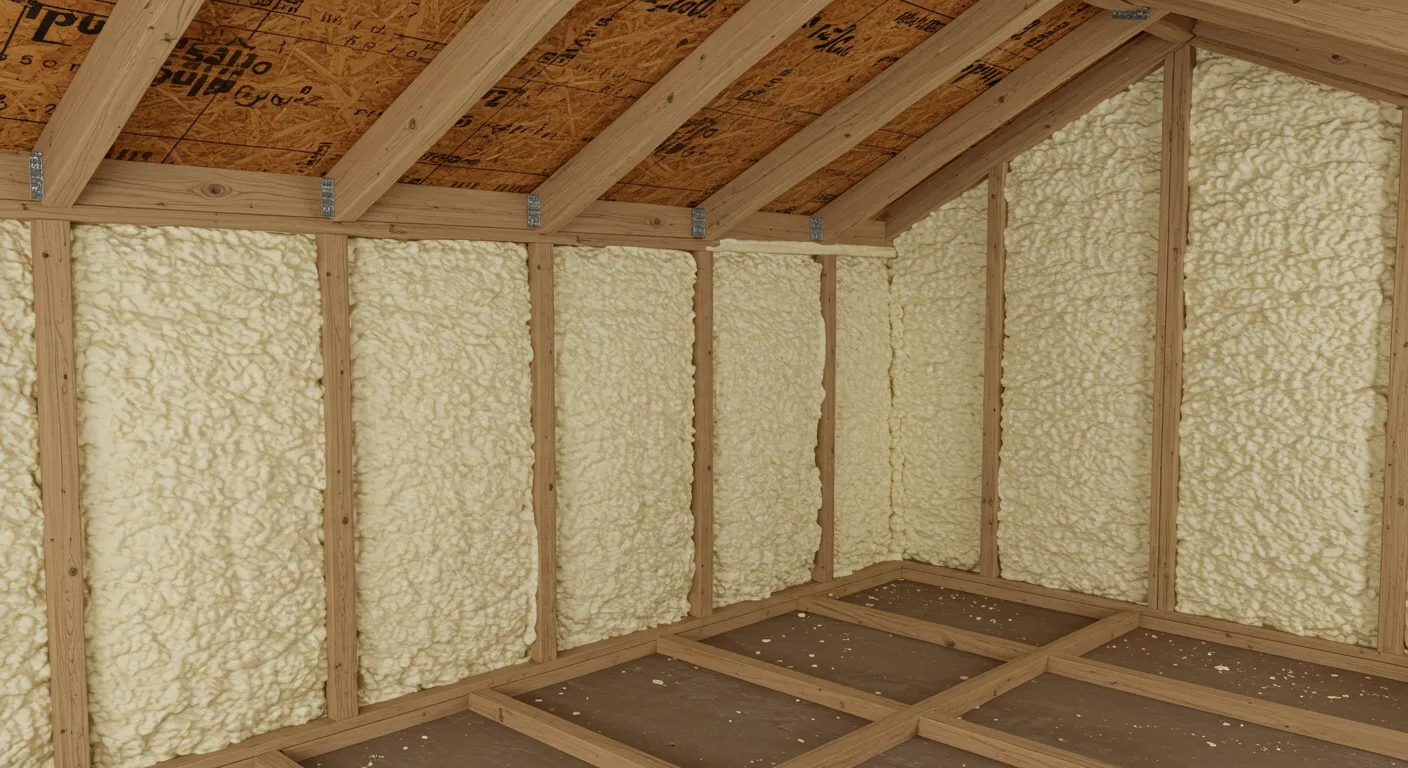
Spray foam insulation has gained popularity in the construction and home improvement industry due to its superior energy efficiency and long-term benefits. However, many homeowners and businesses in Olympia, WA, often wonder whether the upfront cost justifies the investment. This article explores the various factors that influence the cost-effectiveness of spray foam insulation, providing an in-depth analysis of its benefits, potential drawbacks, and long-term value.
Spray foam insulation is a chemical-based material that expands upon application to create an airtight seal. It is commonly used for walls, roofs, attics, and crawl spaces, offering superior thermal resistance compared to traditional insulation methods. There are two main types of spray foam insulation:
| Feature | Open-Cell Spray Foam | Closed-Cell Spray Foam |
| Density | Low | High |
| R-Value (per inch) | ~3.5 | ~6-7 |
| Cost | Lower | Higher |
| Flexibility | More Flexible | Rigid |
| Moisture Barrier | No | Yes |
| Best for | Interior walls, soundproofing | Exterior walls, roofs, and moisture-prone areas |
Spray foam insulation significantly reduces energy loss by sealing gaps and preventing air leakage. This leads to lower heating and cooling costs, often reducing energy bills by up to 50% compared to traditional insulation materials.
Unlike fiberglass or cellulose insulation, spray foam does not sag, degrade, or require replacement over time. It can last for decades, making it a one-time investment for most properties.
By sealing gaps and cracks, spray foam insulation minimizes the infiltration of allergens, pollutants, and moisture, contributing to a healthier indoor environment.
Closed-cell spray foam acts as a moisture barrier, preventing water infiltration and reducing the risk of mold growth, which is particularly beneficial in humid climates or areas prone to moisture accumulation.
Open-cell spray foam provides excellent sound dampening, making it an ideal choice for interior walls in homes and commercial spaces requiring noise reduction.
The initial installation cost of spray foam insulation is higher compared to traditional options like fiberglass or cellulose. However, the long-term energy savings and durability often offset this expense.
Unlike fiberglass batts, which can be installed as a DIY project, spray foam requires professional application due to the use of specialized equipment and the need for precise handling of chemicals.
During installation, spray foam releases volatile organic compounds (VOCs), which may cause temporary irritation. Proper ventilation and professional installation help mitigate this concern.
The cost of spray foam insulation varies based on several factors, including the type of foam, application area, and local labor rates. Here’s a general cost estimate:
The return on investment for spray foam insulation is typically realized through energy savings. Homeowners often recoup the initial cost within 3-7 years through reduced utility bills.
| Factor | Spray Foam Insulation | Fiberglass Insulation | Cellulose Insulation |
| Energy Savings | High | Moderate | Moderate |
| Longevity | 20+ years | 10-15 years | 10-15 years |
| Air Sealing | Excellent | Poor | Poor |
| Moisture Resistance | High | Low | Moderate |
| Installation Cost | High | Low | Moderate |
With its damp climate and cool winters, Olympia, WA, greatly benefits from spray foam insulation. The moisture resistance of closed-cell spray foam helps prevent mold growth and moisture-related damage, making it an excellent choice for homeowners in the region.
Spray foam insulation is a premium insulation solution that provides excellent energy efficiency, durability, and moisture resistance. While the initial cost may be higher than traditional insulation methods, the long-term benefits, including lower energy bills and minimal maintenance, make it a worthwhile investment. For homeowners and businesses in Olympia, WA, seeking an insulation solution that offers lasting value, spray foam insulation is a smart choice.
For expert spray foam insulation services in Olympia, WA, Contact Capital City Spray Foam of Olympia today. Our experienced team can help you determine the best insulation solution for your needs, ensuring optimal energy savings and home comfort.
Spray foam insulation can last over 20 years with proper installation, making it a durable and cost-effective solution.
No, spray foam insulation does not require regular maintenance, unlike fiberglass, which may need periodic replacement.
Yes, once cured, spray foam insulation is safe and does not emit harmful chemicals. However, professional installation ensures proper handling and minimizes any risks during application.
Homeowners typically save 30-50% on energy costs due to the superior sealing and insulating properties of spray foam.
No, spray foam requires professional installation due to the specialized equipment and safety precautions involved.
The main drawbacks include higher upfront costs, the need for professional installation, and potential off-gassing during the curing process.
Many modern spray foam products are made with eco-friendly formulations, and their energy-saving benefits help reduce overall carbon footprints.
Yes, spray foam insulation is an excellent choice for upgrading insulation in older homes, as it helps seal air leaks and improve energy efficiency.
Yes, improved energy efficiency and durability can increase a home’s resale value, making it more attractive to buyers.
Yes, open-cell spray foam provides effective soundproofing, making it a great option for reducing noise transmission between rooms.